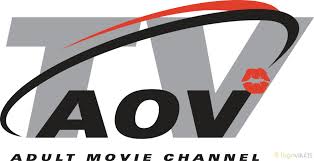
Charles Dolan, Cablevision CEO
Cablevision Systems Corp.’s board of directors have been sued by an investor for wrongfully approving “grossly excessive” compensation for Chairman Charles Dolan and members of his family who serve as executives at the fifth-largest U.S. cable company.
The board of Bethpage, N.Y.-based Cablevision, which includes Dolan’s three daughters, approved more than $80 million in pay and benefits for the firm’s founder and his son over the last three years while the company piled up financial losses, according to the plaintiff’s suit.
Charles Dolan founded the cable company in 1973. Although others at the company have taken a larger role managing its day-to-day operations, Charles still won approval of $41 million in compensation for himself over a three-year period beginning in 2010. His son James was awarded $40 million, despite the fact he seems to be losing interest in Cablevision, preferring to devote more time to his rock band – JD & The Straight Shot – where he serves as lead singer, according to the lawsuit.
The plaintiff alleges the compensation packages were excessive and a waste of corporate assets at a time when Wall Street analysts criticized the cable company for underperforming financially.
![]() “The Dolans treat Cablevision as a family coffer, routinely entering transactions with the company that have improperly favored the Dolan family’s interests over the interests of the company and its public stockholders,” said shareholder Gary Livingston, who filed the suit.
“The Dolans treat Cablevision as a family coffer, routinely entering transactions with the company that have improperly favored the Dolan family’s interests over the interests of the company and its public stockholders,” said shareholder Gary Livingston, who filed the suit.
What the Dolan family wants, they usually get. The family collectively hold shares that control about 73 percent of the company’s voting rights.
It isn’t the first time the Dolan family — now billionaires — have found themselves in court over compensation issues. In 2008, the company’s top executives agreed to pay more than $24 million to settle shareholder lawsuits accusing them of benefiting from stock option grants that were backdated.
Livingston’s case is an example of “baseless shareholder lawsuits designed simply to enrich the plaintiff and his lawyers,” Charles Schueler, a Cablevision spokesman, told Bloomberg News today in an e-mailed statement.


 Subscribe
Subscribe Comcast is dumping a blizzard of cash on Capitol Hill in a late winter storm of lobbying to win approval of its $45 billion buyout of Time Warner Cable.
Comcast is dumping a blizzard of cash on Capitol Hill in a late winter storm of lobbying to win approval of its $45 billion buyout of Time Warner Cable.
 AT&T says it plans to adopt fiber to the home service in cities around the United States as part of an expansion of its U-verse GigaPower service.
AT&T says it plans to adopt fiber to the home service in cities around the United States as part of an expansion of its U-verse GigaPower service. Time Warner Cable telephone customers may find their phone numbers missing from directory assistance records and residential phone books.
Time Warner Cable telephone customers may find their phone numbers missing from directory assistance records and residential phone books. While you wait for Canada’s telecommunications regulator to wake up and realize the country is in the grip of an anti-competitive broadband duopoly, the Canadian Radio-television and Telecommunications Commission is busy making sure Canadian heritage is protected with requirements that adult networks air enough homegrown porn.
While you wait for Canada’s telecommunications regulator to wake up and realize the country is in the grip of an anti-competitive broadband duopoly, the Canadian Radio-television and Telecommunications Commission is busy making sure Canadian heritage is protected with requirements that adult networks air enough homegrown porn.